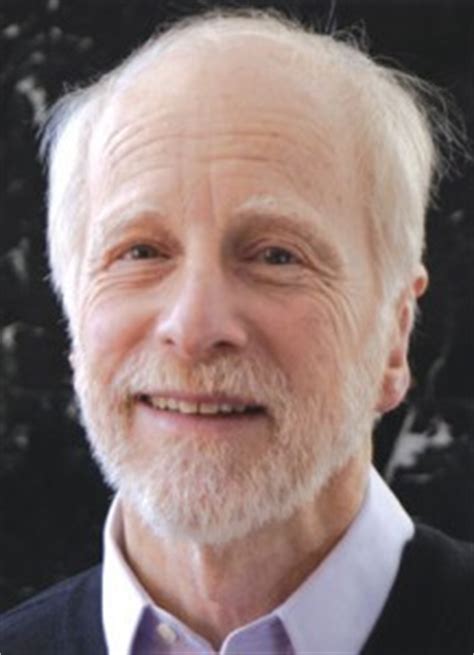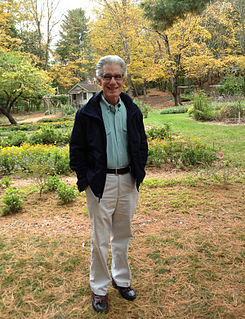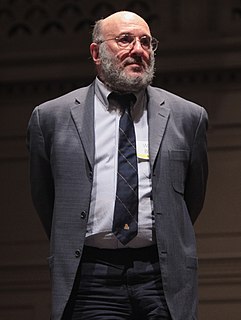A Quote by Anthony Greenwald
The ego is a self-justifying historian which seeks only that information that agrees with it, rewrites history when it needs to, and does not even see the evidence that threatens it.
Related Quotes
Towards the outside, at any rate, the ego seems to maintain clear and sharp lines of demarcation. There is only one state -- admittedly an unusual state, but not one that can be stigmatized as pathological -- in which it does not do this. At the height of being in love the boundary between ego and object threatens to melt away. Against all the evidence of his senses, a man who is in love declares that "I" and "you" are one, and is prepared to behave as if it were a fact.
If there were even one spark of evidence from antiquity that Jesus even may have gotten married, then as a historian, I would have to weigh this evidence against the total absence of such information in either Scripture or the early church traditions. But there is no such spark-not a scintilla of evidence-anywhere in historical sources. Even where one might expect to find such claims in the bizarre, second-century, apocryphal gospels...there is no reference that Jesus ever got married.
Then ego goes on growing, because the society needs you as an ego, not as a Self. The Self is irrelevant for the society; your periphery is meaningful. And there are many problems. The ego can be taught and the ego can be made docile and the ego can be forced to be obedient. The ego can be made to adjust, but not the Self. The Self cannot be taught, the Self cannot be forced. The Self is intrinsically rebellious, individual. It cannot be made a part of society.
How does one get rid of fear? Ramana: What is fear? It is only a thought. If there is anything besides the Self there is reason to fear. Who sees things separate from the Self? First the ego arises and sees objects as external. If the ego does not rise, the Self alone exists and there is nothing external. For anything external to oneself implies the existence of the seer within. Seeking it there will eliminate doubt and fear. Not only fear, all other thoughts centred round the ego will disappear along with it.
The term "self" seems a suitable one for the unconscious substrate whose actual exponent in consciousness is the ego. The ego stands to the self as the moved to the mover, or as object to subject, because the determining factors that radiate outward from the self surround the ego on all sides and are therefore supraordinate to it. The self, like the unconscious, as an a priori existent out of which the ego evolves. It is, so to speak, an unconscious prefiguration of the ego. It is not I who create myself; rather, I happen to myself.
In Buddhist ideology, the conventional self is that which is constructed in a way by the use of the pronoun, and when you realize there is no absolute ego there, no disconnected one, self, or ego, then that actually strengthens your conventional ego. It does so in the sense that then you realize it's a construction, and you can strengthen it in order to help others, or do whatever you're trying to do, it's not like you no longer know who you are. Then you can organize your behavior by using your ego, as it's now the pronoun.
We still have to realize that if you are say a historian of the Civil War, you don’t know anything special about say Columbus or for that matter the 20th century. You are a consumer of that information, especially if it’s stuff like Columbus and the American Indians. That information isn’t even in history, much of it. Much of it is in anthropology or archeology.
. . . What role does historiography play in the way a society and culture "remembers" past events? Does the historian have a moral or civic responsibility to this project of memory that ought to influence the way he or she engages in historical practice? Should moral concerns influence the historian's choice of subject matter, of issues to discuss, of evidence to use?
As Hubert Benoit said, it is not the identification with the ego that is the problem, but the exclusive nature of the identification. When our self-identity expands beyond the ego, into the deeper psychic, then even into the Unborn and One Taste, the ego is simply taken up and subsumed in a grander identity. But the ego itself remains as the functional self in the gross realm, and it might even appropriately be intensified and made more powerful, simply because it is now plugged into the entire Kosmos.
A letter is not a dialogue or even an omniscient exposition. It is a fabric of surfaces, a mask, a form as well suited to affectations as to the affections. The letter is, by its natural shape, self-justifying; it is one's own evidence, deposition, a self-serving testimony. In a letter the writer holds all the cards, controls everything about himself and about those assertions he wishes to make concerning events or the worth of others. For completely self-centered characters, the letter form is a complex and rewarding activity.
Consider the sexual harassment which continually occurs between a secretary and a boss . . . while objectionable to many women, [it] is not a coercive action. It is rather part of a package deal in which the secretary agrees to all aspects of the job when she agrees to accept the job, and especially when she agrees to keep the job. The office is, after all, private property. The secretary does not have to remain if the 'coercion' is objectionable.
This ego has all the desires, ambitions, wants to be always on the top of everything. You are exploited by this ego. And this never allows you even a glimpse of your real authentic self, and your life is there, in your authenticity. Hence, this ego only produces misery, suffering, fighting, frustration, madness, suicide, murder - all kinds of crime.


































